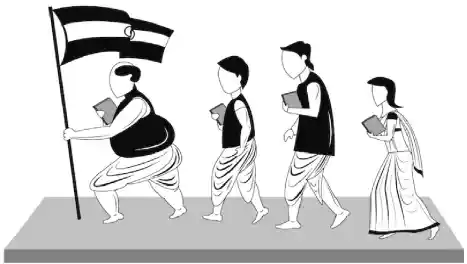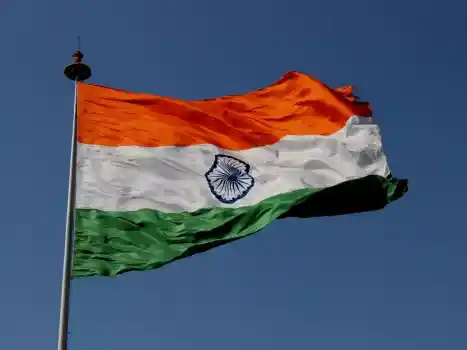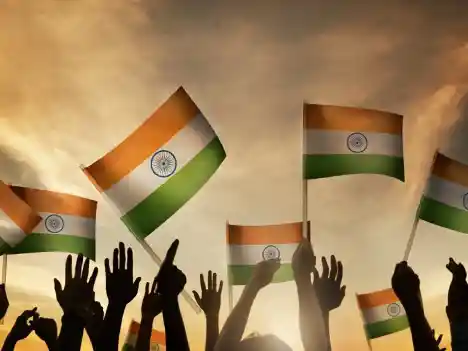When Pen Became the Sword
We all must have heard that a single pen can accommodate a lot more than a sword. This is a story of a weapon that made the land hunger Britishers so restless that they were bound to ban the fearless writers and their works.

India celebrates its 75th Independence day; Image Source- The Curious Leader.
"AAO BACHCHO TUMHE DIKHAE JAKI HINDUSTAAN KI,
ISS MITTI SE TILAK KARO YEH DHARTI HAI BALIDAN KI… "
- Kavi Pradeep
A song that is enough to make the whole nation know about the sacrifice that our heroes have made to free our nation from the hands of land hungers was sung by Kavi Pradeep. Through a single song he beautifully showed us the journey of free India. Songs or poems have always been a great medium for connecting hearts. Even after 75 years of Independence, our hearts start beating faster listening to the lyrics of these songs which propel us to do something spectacular for our Motherland…
A true writer is someone who can elicit your emotions through their work. Writers like Rabindranath Tagore, Josh Malihabadi, Muhammad Iqbal, Bankim Chandra Chattopadhyay, Mohammad Ali Jouhar, and Kazi Nazrul Islam indeed proved this and inspired many people across the nation to fight against the Britishers despite of their different religion and culture.
Whether it be "SARE JAHAN SE AACHA" or "YE DESH HAI VEER JAWANOO KA" each and every single song can give you goosebumps even today. This was the power of the author in those days who still kept their works alive in every Indian’s heart. There are numerous Poems and songs that helped Indians to fight against those land hunger bravely.
The publishing of poems or songs in newspapers was a smart step that made the Britishers restless, so restless that they started banning those works. The introduction of the printing press in India was a watershed moment in the history of the Indian people, resulting in the birth of the nationalist press and the awakening and growth of national consciousness among them. In the 1870s, the Indian press began to spread its roots and gave birth to many fearless journalists who proved that a pen can also be a sword…
India is no different. It was the period of the 19th century when the Indian minds began to crave freedom. This patriotic fervor that was spreading throughout the country found expression in literature as well which played a great role. It has always been used and is still being used as a tool to spread awareness.
Newspapers like Vande Mataram, founded in 1905 by Bipin Chandra Pal, Abhinash Bhattacharya, and Bhupendranath Dutt, and Harijan, founded by Gandhi in 1932, and Jungantar Patrika, founded in 1906 by Barindra Kumar Ghosh, sought to make Indian citizens socially and politically aware, as well as unite them around a common cause. These Pamphlets written and distributed throughout India provided critical information while also serving as anti-British sentiment. Many intellectuals of the time, however, thought it was also important to use fiction and poetry for patriotic purposes and to create a nationalist discourse.
It was 1870 when our national song Vande Mataram was penned by the gem of Bengal, Bankim Chandra Chattopadhyay who hailed India as ‘mother’. In his novel 'Anandamath', he included these lines, which truly captured the patriotic spirit of the time. Rabindranath Tagore, later composed and sang this poem at the Calcutta session of the Indian National Congress in 1896 which instilled a patriotic spirit in the masses.
'Vande Mataram' rang out in the streets of Calcutta during a protest demonstration against Bengal's partition in 1905. The British government, however, had banned both the song and the novel Anandamath. Many nationalists were imprisoned simply for daring to sing 'Vande Mataram' in public. But later after the Independence in 1947, this song was designated as India's national song in 1950.
Every revolution that happened on the page of history has always begun with a refusal to accept the oppressor's propaganda and indoctrination. It doesn't matter which revolution it was, all had very powerful counter propaganda in the form of music, art, and stories that played a crucial role in helping to resist further indoctrination and helped to unite the struggles and boost the morale of those revolting, as well as luring more and more people to the movement.

"Sarfarosi ki tammanna ab hamare dil mein hai"- was a poem which later turned into a popular slogan; Image Source- Times of India.

United we stand, divided we fall; Image source- Quizzop.


